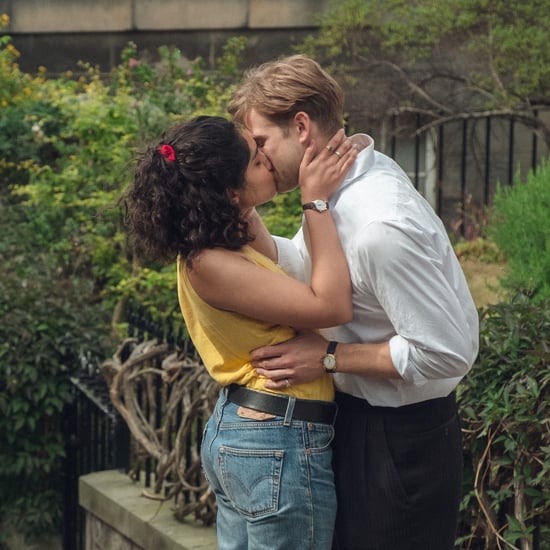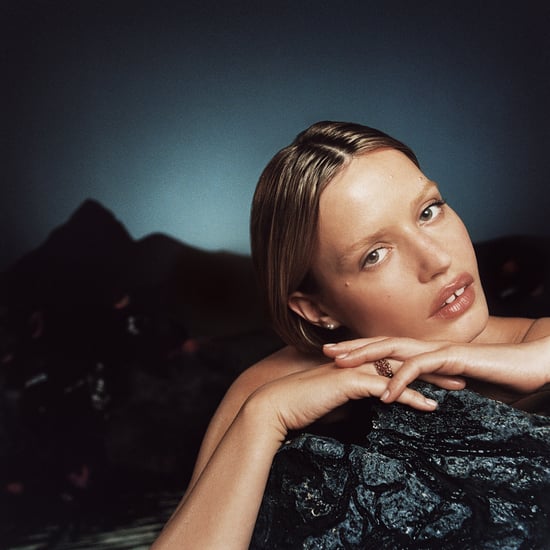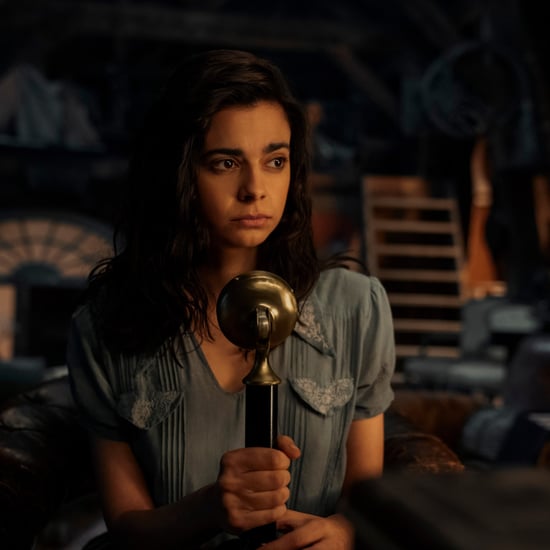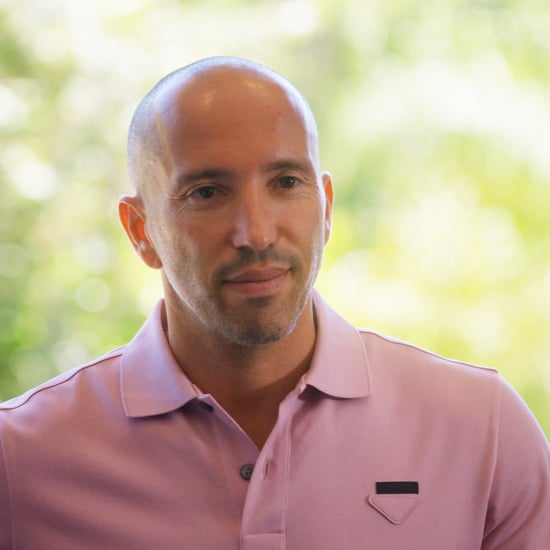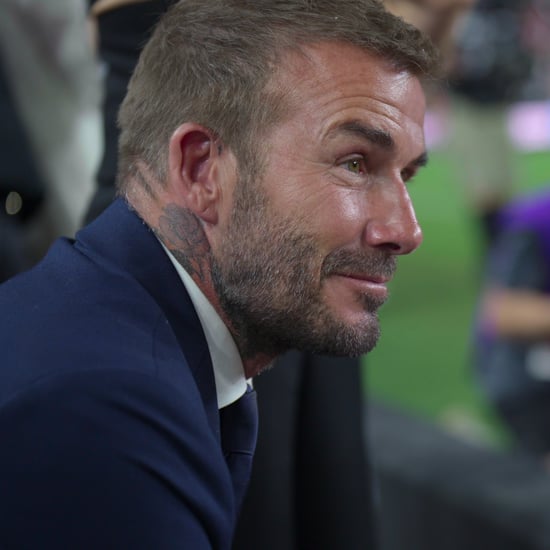Krysten Ritter and Rachael Taylor POPSUGAR Interview 2018
Jessica Jones Stars Krysten Ritter and Rachael Taylor Talk Season 2, #MeToo, and Janet McTeer
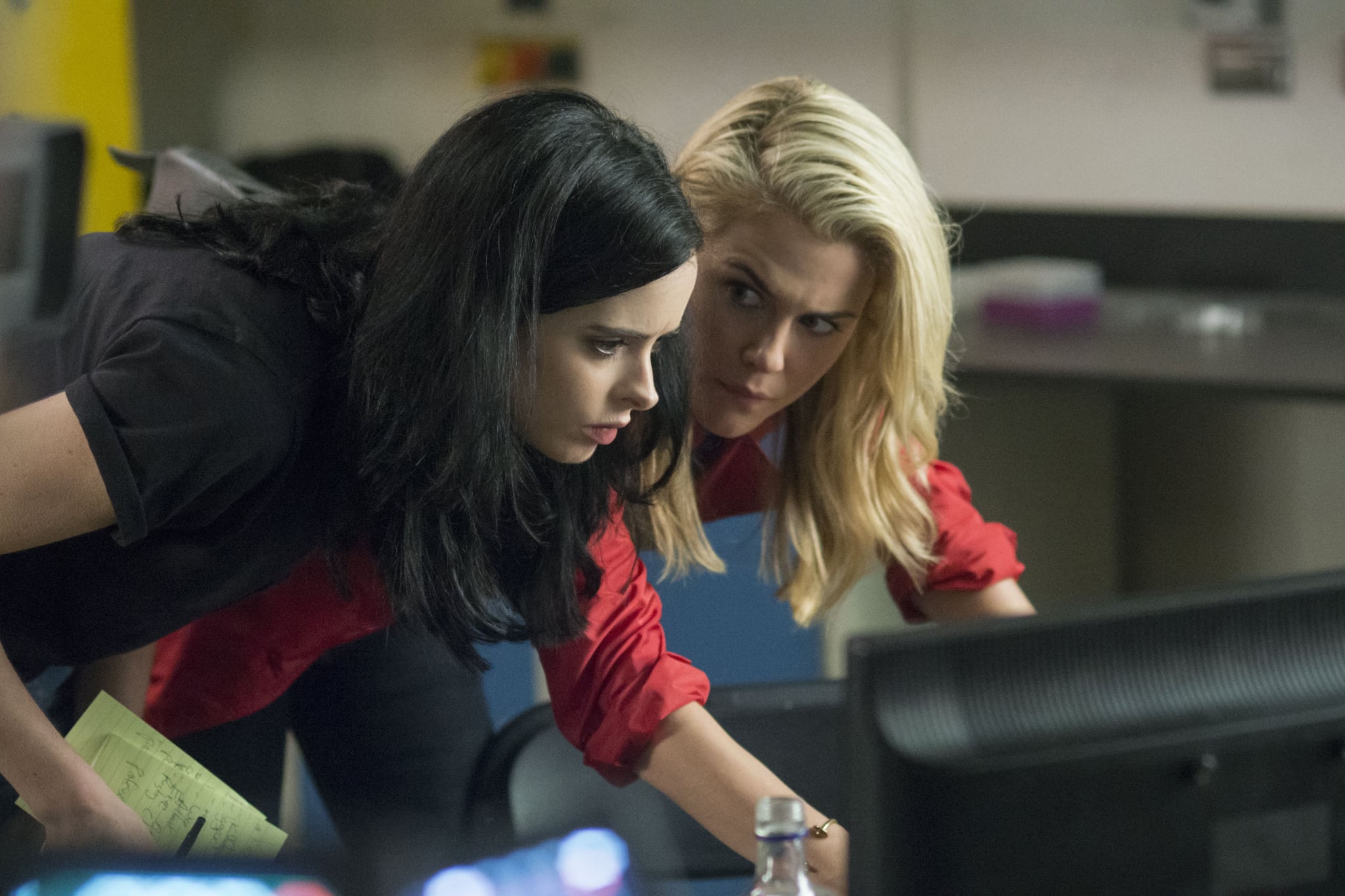
It's been three long years since the first season of Jessica Jones dropped on Netflix, and while we've caught glimpses of our favourite characters in other Marvel series – most notably, The Defenders – we can pretty definitively say that the fierce females that are Jessica and Trish have sorely been missed. But here's the good news: season 2 was definitely worth the wait, and we're even more obsessed than ever.
POPSUGAR sat down with the two heroines of the show, Krysten Ritter and Rachael Taylor, two days before the show hit queues across the country on International Women's Day, and below (with mild spoilers) you'll see just why the show is exactly what we need right now.[
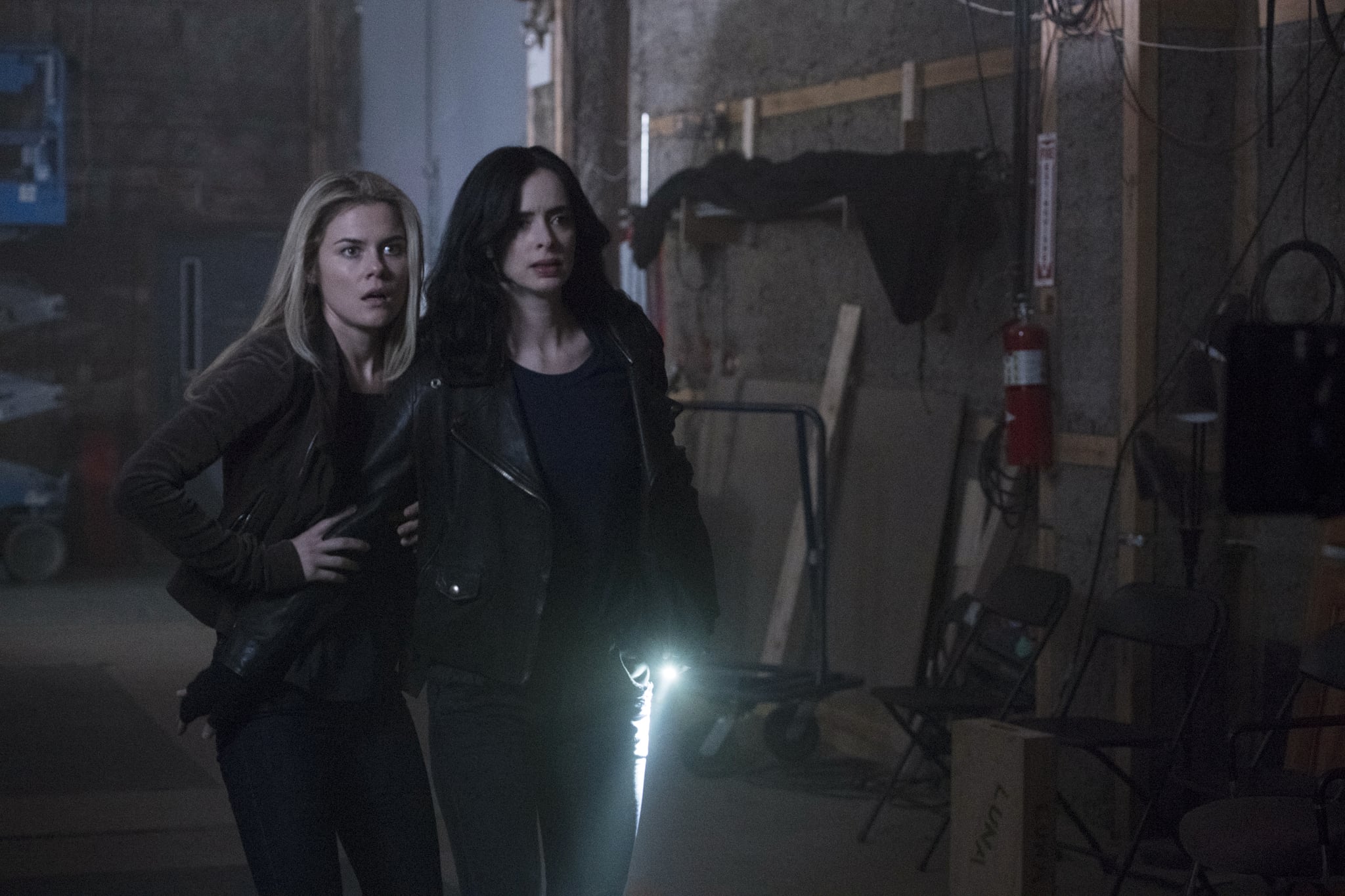
POPSUGAR: Both Jessica and Trish get way darker in season 2 – but in amazingly powerful ways. How do you think both of your characters have changed and evolved from season 1?
KRYSTEN RITTER: I think they're both in a much darker headspace. For Jessica, it's because she killed Kilgrave and all of those feelings and her PTSD and her issues and that trauma doesn't just go away, and on top of that, she's really struggling with "am I a murderer?" versus "did I do the right thing?" Jessica doesn't want to kill people, so there's a lot of self-loathing. She's also very angry, and there's a lot of rage, and she's drinking a lot – and she's just as much of an asshole as ever. And then I think that Trish is also in a pretty dark space.
RACHAEL TAYLOR: Yeah, particularly in the back half of the season – it gets much darker.
KR: For Jessica too!! Sh*t gets dark.
RT:: It just keeps going down. But it comes up! One of the things I like about playing Trish is that, on one hand, on the surface it looks like she has everything that she could ever want, but she is stuck with this unholy ambition. She desperately wants to be more than what she is. I think that at her core, she probably has relatively low self-esteem – she wants to matter. She wants to help people and save people the way that her friend can. And I think season 2 sees her compromise herself; in order to try and occupy more space, to be more powerful, and not be vulnerable again. Trish wants to be the leading lady and she's not. I think that's kind of grim when that person is your best friend. We've always seen Trish and Jessica stand by each other, and what's exciting about season 2 – and what's very, very dark – is that idea wobbles for Trish. She so badly wants to be more than what she is, that she's prepared to double-cross Jessica in some moments or certainly push her in a way that's questionable. Even in the first five episodes, you see Trish push Jessica to delve into her past, which for Jessica is so dark and so painful, but Trish is prepared to literally shove it in her face to try and get what she wants.
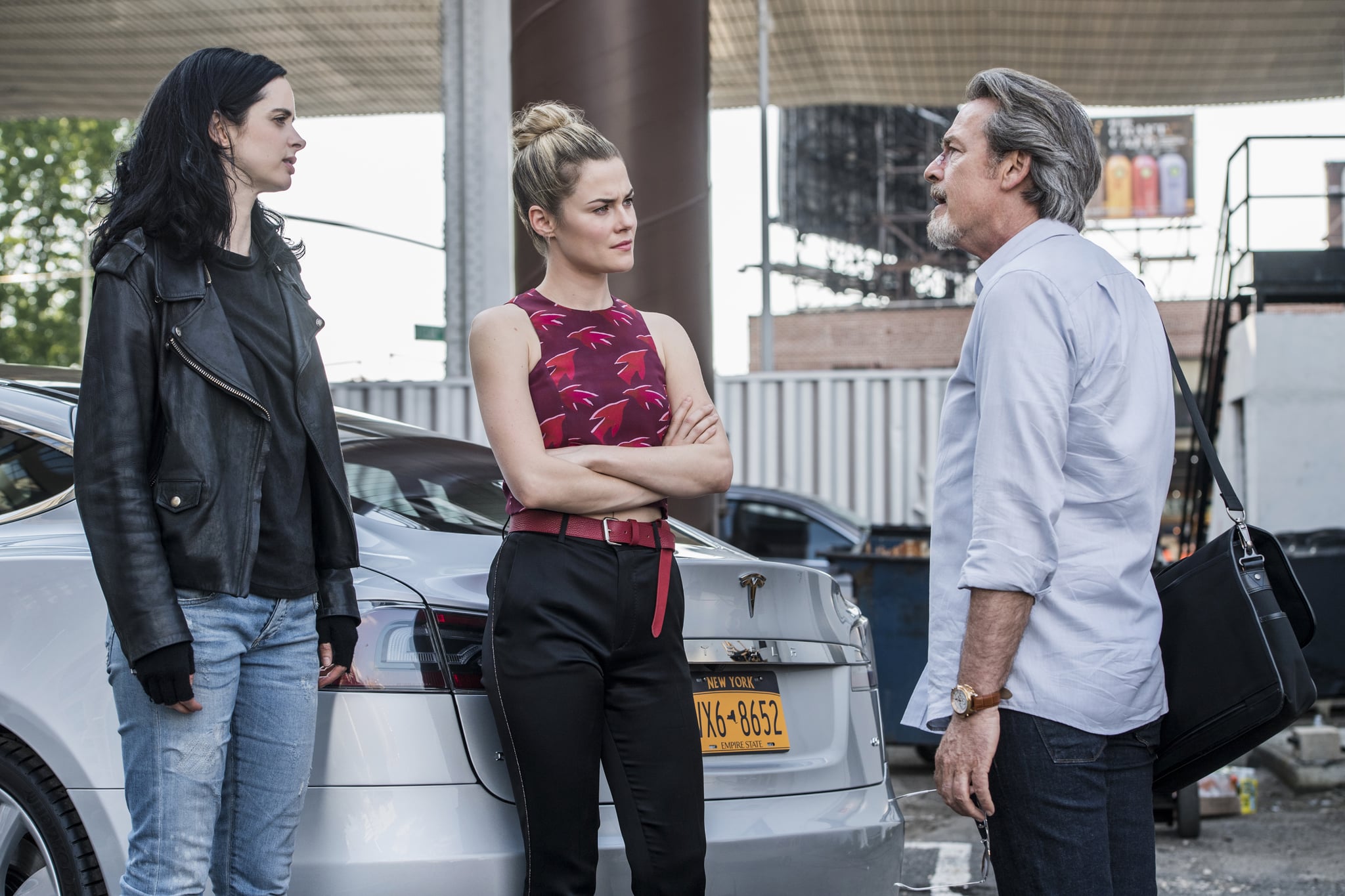
PS: Do you think that there's a bigger divide between the good guys and the bad guys when comparing season 1 and season 2? I think there's an emotional component there with people who are maybe not powered but have biases –and there's a lot more going on with how those divisions work and who's good and who's bad.
KR: Our main opposing force is very personal, I think it's more personal than you could possibly imagine and it's very shockingly personal to Jessica Jones.
RT: But what I like about season 2 and the idea of the big bad is that in lots of ways, it's about fighting the monster within.
KR: Jessica's almost like her own big bad.
RT: Yeah, totally. And it's about our own personal demons that trip us up and stop us from saving ourselves. Ultimately they triumph, I think, but I do really welcome this slightly less binary idea of good and bad. Season 2 does that really deftly. It does clarify in the back half of the season, but I like the idea that for my character, she's not always good in season 2. I think that's both relatable and exciting to see. You often hear people ask about characters, "are they likable or not?," but I mean, who cares? Who cares about likeable? These are just relatable, grounded characters that all have shades of good and bad in them.
PS: Something I was really intrigued by, along those lines, was the repeated use of "vigilante superhero" and "monster." How do you think those terms are defined?
KR: A vigilante superhero is not what Jessica wants to be –
RT: But it is what Trish wants to be.
KR: Totally. And then a monster is a bad person who does things like Kilgrave did. Jessica doesn't want to be either of those things. So I think that's part of the dark headspace – that the society, and the city, and the people want to put on her that she's a vigilante superhero, but she doesn't want to be that. She's worried that she's a monster. She doesn't want to be that.
PS: Yeah, one of the lines that floored me was when Whizzer says, "With great power comes great mental illness."
KR: I think that's our show in one line. The self-loathing, the self-deprecation, the joke on top – that's the tone of our show in one line. That's what Melissa [Rosenberg, showrunner and creator of Jessica Jones] does best.
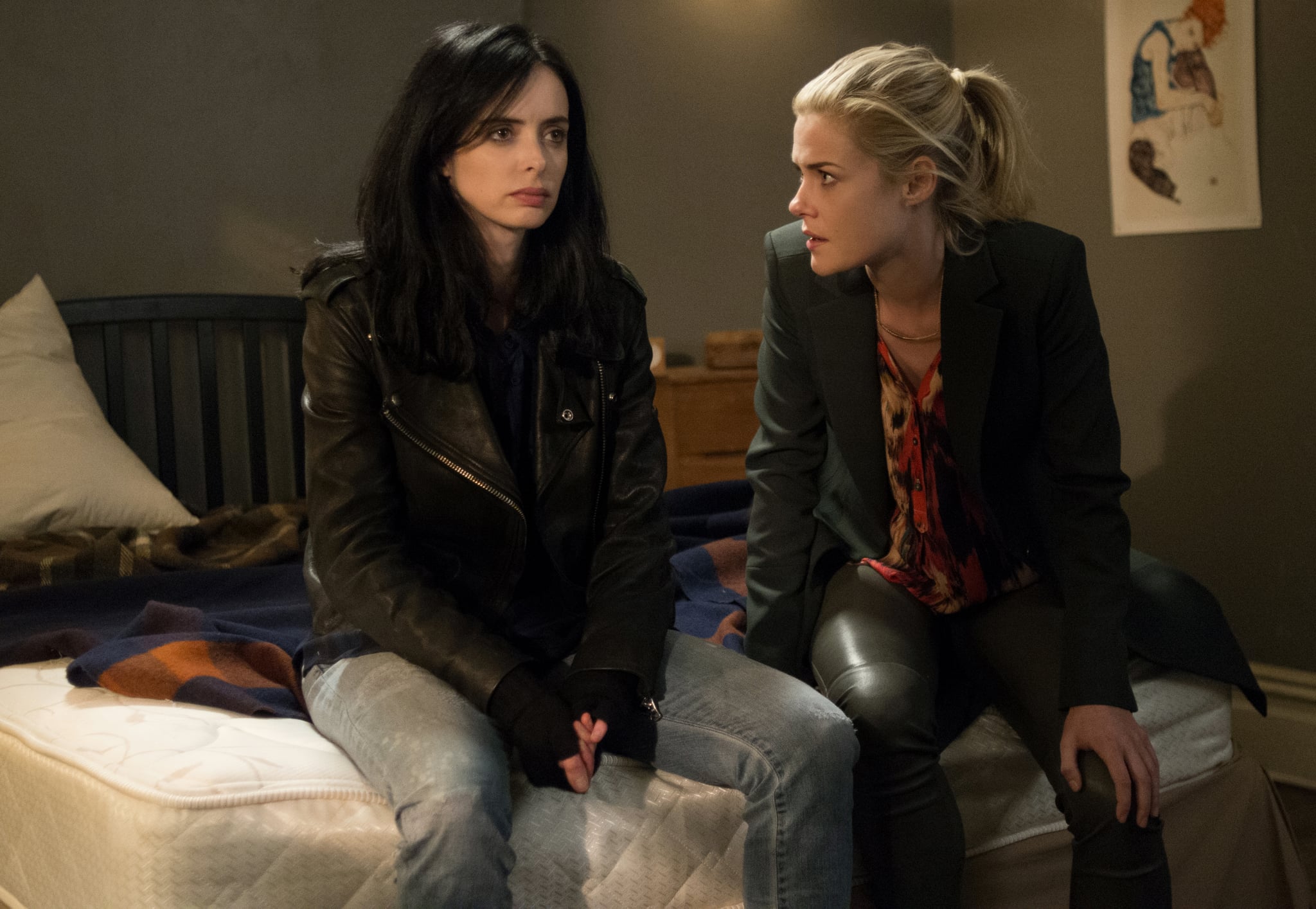
PS: I'd love to hear about what the creative process was for season 2 between you and Melissa.
KR: Melissa and I pretty much share a brain at this point. We're really collaborative, we've got a really strong relationship. It's just rare. I have a relationship with her that I don't really hear other actors talking about. She'll write a scene, I'll see an early draft of something, and from her writing I'll have a million ideas and I'll call her up and we'll go through and make it deeper, pull things out even further. So I look up to her; we collaborate in this beautiful way, we have all this passion, and heart, and excitement, but I also look up to her as a friend and a mentor. And she says I'm her muse. We just have this thing. You know when you're dating people, it can be ok, and then you find the right one and that sh*t's on fire. With Mel and I, we're just on fire together. She brings out the best in me.
RT: It's very cool to watch, actually. I remember a scene in the courthouse and Krysten looking at the script and going, "I can make this more Jessica. I can make this better," and then watching Krysten and Melissa ping off each other to find the scene and give it what audiences end up seeing. Which is ultimately a female character that is iconic. I think Jessica Jones is iconic. It's a really cool collaboration to watch.
KR: It was like 4 in the morning, maybe, it was brutal –
RT: But you guys were so on it! I was watching you two be like, "No, it's this, it's this" and really honing that script to make it what the viewer ended up seeing which is this Jessica blend of dark and emotional but also not emotionally indulgent. It's a really fine line that you walk with the voice of that character, and watching you nail it and collaborate with Melissa. It was just really cool to see.
KR: Yeah, I just think it's so fun. It's so exciting to have that with your boss, with your showrunner. Most of the time what happens is that we'll start finishing each other's sentences or she'll write a line and I'll be like, "You know what, I think it's half of that line. Cut it way down." Maybe she writes 10 words, and I'm like, "Let's say three of them." It's a great partnership. I always say that Jessica is half Mel and half me.
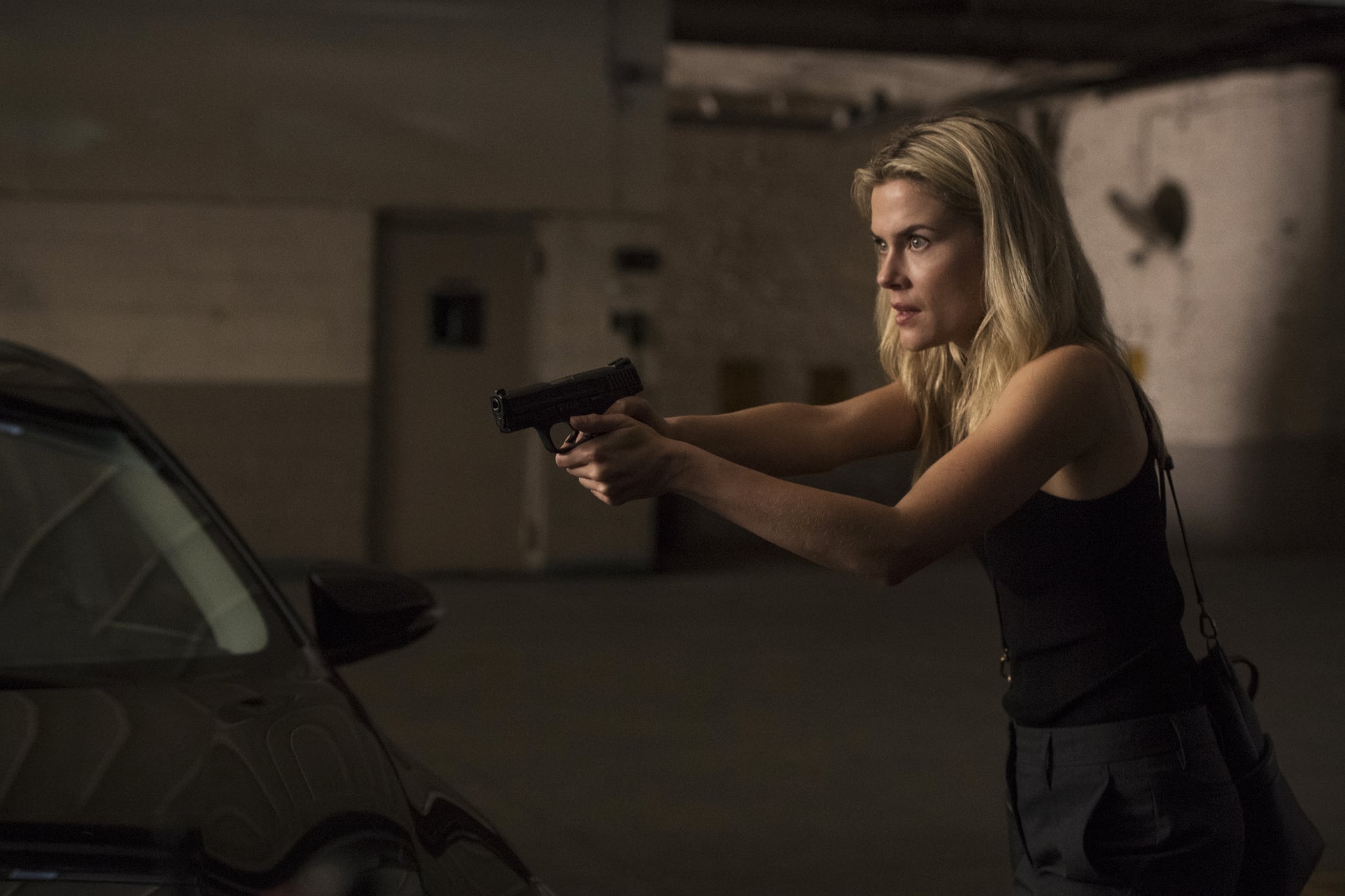
PS: Trish's whole story arc with Max is incredibly prescient. I know Melissa wrote this well, well before #MeToo, but I'd love to know how both of you feel now about that and how the show's brilliant portrayal of sexual misconduct plays into that.
RT: Well, it's certainly timely. We couldn't believe it when all of these stories in Hollywood started rising to the surface. It's an incredible moment of radical honesty for women in our industry, but, of course, Melissa wrote this two years ago and I think it really speaks to Melissa's ability as a writer to really tap into culture in such a deeply truthful way. Men's abuse of power has been going on for eons, so for Melissa to write about that and thread it through Trish's storyline – obviously, Trish was a child star – I think is a little stroke of genius on her part. I certainly wish that it didn't connect with reality in the way that it does, but that's Melissa's knack. She writes about a real world, it's a superhero show but she writes about the female experience in culture as it is.
KR: Everything that's gone on has caused everyone – myself included – to do an inventory of their lives. An inventory of their experiences, and their careers, specially the beginning of your career, early 20's, when you still look like a teenager. That's usually when it's the worst, and I think that everything that's going on has scratched this anger that maybe has been there forever lying dormant. Now it's like, full on and loud and I think that's how Jessica feels. For Jessica, she's got anger in spades that she carries around. That's a heavy load for her, so having to relive or think about or face what happened to Trish f*cking puts her over the edge. I think that is something that we all can relate to right now.
RT: And for Trish as well. Her negotiation with Max – what I thought was really relevant about it is about how women use their voices and what the cost is; how they occupy space, how that is difficult and requires a great amount of bravery and can also be quite traumatizing. I love the scene where Trish is trying on an outfit, trying to think of a way to make herself feel powerful going up against a monster from her past. That's a really moving idea – I know that experience as a woman. "What suit of armor am I going to wear that's going to make me feel protected in this moment?"
PS: I have to ask the question: what was it like working with Janet McTeer?
KR: Highlight of my life. Highlight of my career. I think after season 1, with David Tennant, we really needed a powerhouse actor and that's exactly what we got with Janet McTeer. Working with her was the most exciting thing of my career. She is so fierce, and so strong, and so smart. And also, she's sometimes just so adorable. I wondered in moments if I was in love with her. I had such a talent crush, and getting to work opposite her in such an intimate way. . . sometimes we'd have eight-page scenes together, which felt like I was doing a play with Janet McTeer. [She's] really physically confident, just the f*cking best. I also loved our downtime together out of character because we just kind of got along really well. She's sassy, I'm sassy, but she's even sassier.
RT: I've got to be honest, I think she's a lot like you. Powerhouse, really sassy, but also really warm and someone you really want to hang out with. You guys are more similar than you think.
KR: Maybe that's why I'm obsessed with her.
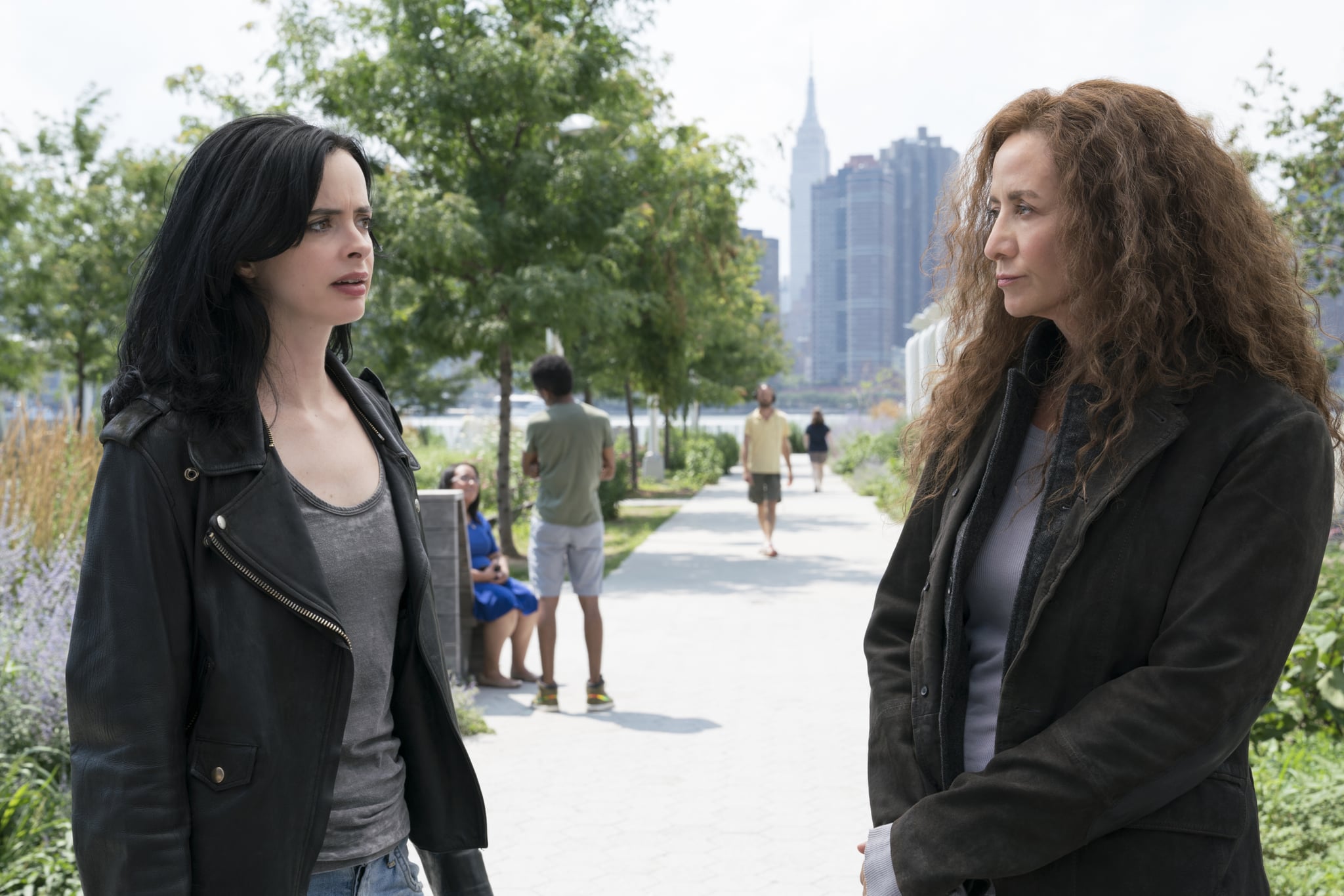
PS: So overall, what was your favourite scene from season 2?
KR: We have a flashback episode where we see Trish and Jessica younger, see what their friendship is like. The friendship is our favourite part of our show anyone, so anytime we can see that through a different lens or from a different angle, it's pretty exciting.
RT: I have to say, it's really beautiful. For so much of season 2, Jessica is in such a deeply dark, traumatized place, and in episode seven, you get to go back and see this beautiful heart that this girl had before Kilgrave, before darkness, and see the friendship between these two young girls, and you get to see what a good friend Jessica has been to Trish. In season one, we see Trish and you're like, "Goddamn you're good a friend to Jessica," but then we go backwards and we get to see how Jessica has stood by Trish through some really cray times. See what I did there?
KR: I sure did.
RT: That's going to make sense when you watch the episode.

